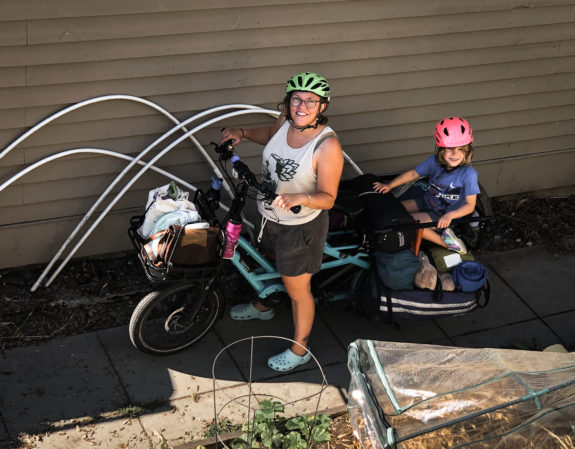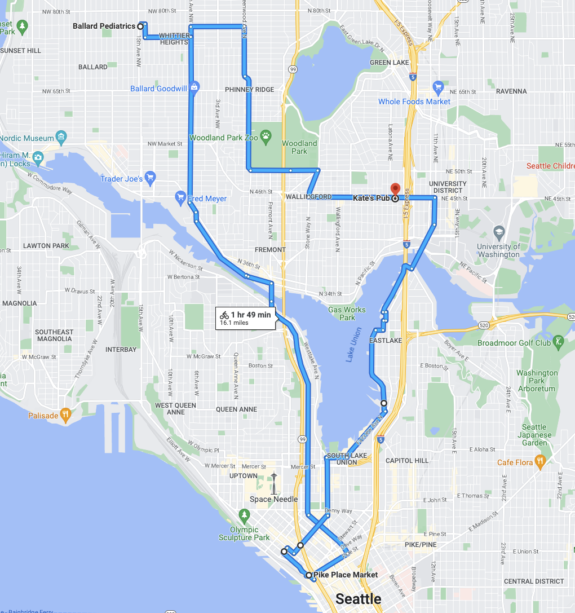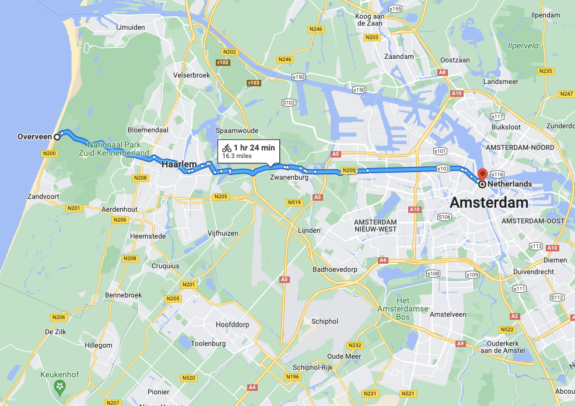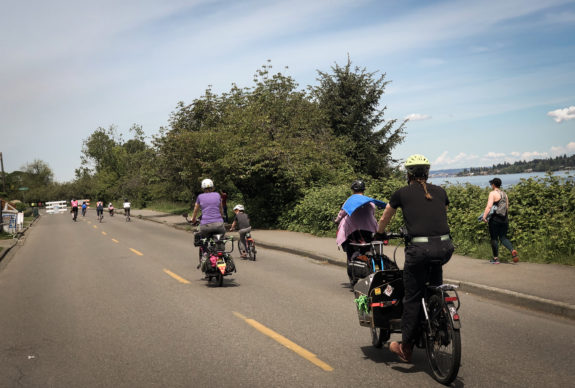 I expected to feel a little sad upon arriving back in the United States after a weeklong family vacation in Amsterdam. But that’s not what happened.
I expected to feel a little sad upon arriving back in the United States after a weeklong family vacation in Amsterdam. But that’s not what happened.
I love Seattle, and I love biking here. Perhaps it’s because I’m older now or have a kid or because I wrote a whole book about biking in this town, but I’m seeing cities in a totally different context now than I did the last time I was biking around Europe back in 2016. Rather than stewing in envy about the vastly superior walking, biking and transit experience in the storied Dutch city, I’m filled with optimism and hope for our young and odd city.
Writing my book forced me to take a big step back from the day-to-day politics of Seattle and think about the multi-generational context of this place. Zoom out far enough and it’s hard to see anything other than white supremacy. This land was claimed under the Donation Land Claim Act of 1850, which was an explicitly white supremacist law guided by the genocidal doctrine of Manifest Destiny. Only a “white settler or occupant of the public lands” could make claims, and the United States military defended those claims with violence. Many of the decisions Seattle’s government made and continues to make to this day have been based around increasing and protecting the value of these land claims.
Looking at Amsterdam through a similar lens (though one that needs to zoom out much further back in time), and you see a city built using the spoils of colonialism. Those colonial holdings were enforced by military might and justified through racism. Much of the wealth from colonialism was invested into the buildings and canals and streets and trains and museums that make up that amazing place.
The Tropenmuseum in Amsterdam is a fascinating place these days. Formerly the Colonial Museum, the Tropenmuseum is now seemingly in the midst of wrestling with the brutal reality of colonialism. They turned the core exhibition of its artifacts upside down by making the exhibit about the theft of the artifacts. It’s not simply acknowledged in the fine print, it’s the focus of the exhibit. “Our Colonial Inheritance” is about the ways Dutch colonialism has shaped those places, and how colonized places shaped Dutch culture. It’s not a perfect exhibit, but it was much more frank and honest than any other colonial artifact exhibits in other grand European museums I’ve visited.
Understanding the horrors and injustices that built these places is ultimately liberating because it scrapes away the veneer of legitimacy, removes the misplaced need to have reverence for past perpetrators of theft and violence, and ultimately demystifies our cities. We are the people of this city now, and all of us have inherited this place and its history. It is up to us to make our own decisions about what happens here next. No white settler decision from our city’s past is sacred. It is never too late to seek justice.
Truly loving a city, whether it’s Amsterdam or Seattle, requires learning and fully embracing the truth about its past. I love Seattle not because of what it was in the past, but because it is always changing. It is a place balanced on top of ridges carved by glaciers with active volcanoes building pressure on one side and a massive fault building pressure underwater on the other. This place is alive and powerful. People elsewhere look at Seattle as though it is some kind of city of the future, and that puts our city in a very interesting position. It’s our city’s responsibility to showcase the future we want to see everywhere. And really, what do we have to lose by trying?
There are so many smart and inspiring people in Seattle. I know it is difficult to watch local news closely and witness the city fail day after day to live up to its potential. But to all of you out there trying every day to make things better, I believe in you.
I believe that Seattle can house every resident in a healthy, safe and dignified home. I believe Seattle will be the first major U.S. city to eliminate traffic deaths and injuries. I believe Seattle can thrive using only renewable energy. I believe Seattle can restore the rightful power and wealth owed to Indigenous and historically exploited communities, and that doing so would make our city even stronger.
I personally don’t hold the answers on how exactly to do all of this, but I believe the communities in our city can and will figure it out together. And then we’ll show the world.














